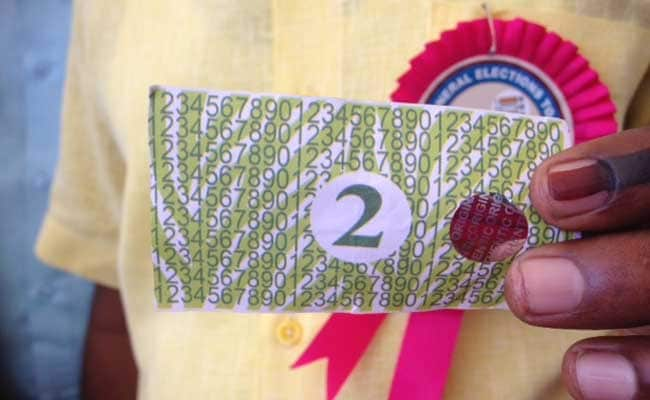Exclusive documents show how the money was being distributed systematically by political parties.
Chennai:
A hologram carrying coupon for Rs 1000 -- the exchange takes place at secret locations, mostly after dark. That's how much of the campaign has been conducted in Tamil Nadu, which voted in a single phase today to elect the next state government.
Bribing people for votes has been so brazen that the Election Commission has postponed elections in two constituencies -- Aravakurichi and Thanjavur. The officers of the commission have seized a record Rs 105 crore in the run-up to elections.
NDTV accessed exclusive documents that show how the money was being distributed systematically by political parties. Besides the hologrammed coupons, there are extensive lists, recording the amounts distributed in various locations.
The coupon (see photograph below) has a hologram embossed on it, that can be exchanged for money.

MDMK candidate Ambikanathan told NDTV that thousands of such coupons have been distributed in North Chennai to avoid visible cash transactions. To evade the flying squads of the election commission and the police vigilance squads, children have been used to distribute the coupons.
The cash is reportedly given to the heads of families - the amount depends on how many members are voting. To avoid detection, he is expected to distributed the money cash among the voters in the extended family, sources said.
Admitting the distribution of such coupons, Chief Election Commissioner Rajesh Lakhoni said, "We got a case filed with the police... Hundreds of such holograms have been used. They were being distributed by children.''
One of the voters, Devi, said there are visits in the cover of darkness and money does change hands. But there's a caveat. "It doesn't mean people vote according to who paid how much,'' she said.
Bribing people for votes has been so brazen that the Election Commission has postponed elections in two constituencies -- Aravakurichi and Thanjavur. The officers of the commission have seized a record Rs 105 crore in the run-up to elections.
NDTV accessed exclusive documents that show how the money was being distributed systematically by political parties. Besides the hologrammed coupons, there are extensive lists, recording the amounts distributed in various locations.
The coupon (see photograph below) has a hologram embossed on it, that can be exchanged for money.

MDMK candidate Ambikanathan told NDTV that thousands of such coupons have been distributed in North Chennai to avoid visible cash transactions. To evade the flying squads of the election commission and the police vigilance squads, children have been used to distribute the coupons.
The cash is reportedly given to the heads of families - the amount depends on how many members are voting. To avoid detection, he is expected to distributed the money cash among the voters in the extended family, sources said.
Admitting the distribution of such coupons, Chief Election Commissioner Rajesh Lakhoni said, "We got a case filed with the police... Hundreds of such holograms have been used. They were being distributed by children.''
One of the voters, Devi, said there are visits in the cover of darkness and money does change hands. But there's a caveat. "It doesn't mean people vote according to who paid how much,'' she said.
Track Latest News Live on NDTV.com and get news updates from India and around the world

